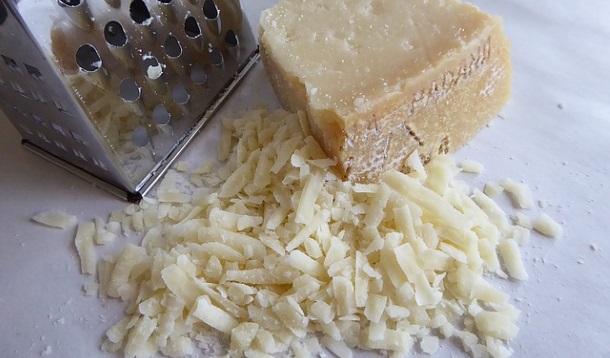
Are you a big fan of those bags of Nacho Grated Cheese mixes? Does your parmesan cheese come from a can?
Does the very idea of grating your own cheese make you do this?

If the answer to any of those above questions is yes, then there's something you should know: you're eating wood. Or at least, something that used to be wood.
In the USA and Canada, products like cellulose and microcrystalline cellulose are government-approved food additves used as anti-caking agents, fillers, texturizers, bulking agents, AND fat substitutes (this might make you think twice about the low-fat options too). Cellulose is found quite naturally in all plant matter... however for commercial purposes, it's often commonly made from refined wood pulp or sawdust.
Now, this isn't exactly news, as there was a great cheese scandal some four years ago when the FDA opened a can of Cheez-Whiz on Castle Cheese down south for fraudulant adulteration of Parmesan (that's so much fun to say). But the reason that they got in doo-doo with the FDA wasn't that they used wood in the food at all; it was that the label promised goods that were 100% pure.
Government-mandated acceptable levels of cellulose vary, from up to 4% in the US to up to 2% in Canada, but apparently down south they still got some (okay, lots) of problems with labels: according to Bloomberg Business, independently-tested cheeses from Wal Mart and Jewell-Osco contained 7.8 and 8.8% cellulose - something you might definitely want to keep in mind if you're cross-border grocery shopping. Indeed, some tested samples of "grated Parmesan" contained no actual Parmesan at all, and instead were blends of other cheeses.
While there's been nothing in the news about the Canadian Food Inspection Agency (CFIA) cracking down on mislabeled Parmesan here, the fact remains that, hey, if you're eating grated cheese, you're still eating wood products. And it's up to you to decide if eating any amount of former wood pulp is okay with you, whether the company follows the government-allowable guidelines or not.
If you made this face here?

You'd better stick to the brick and grate your own.